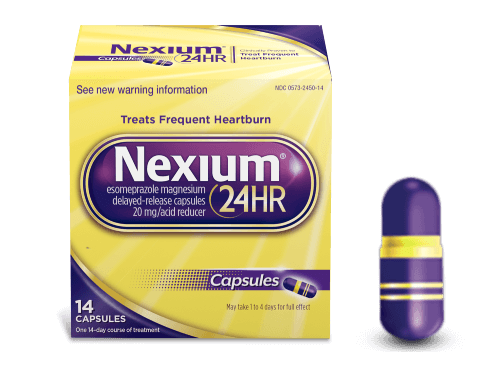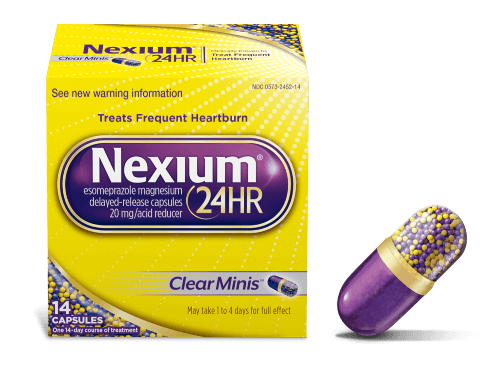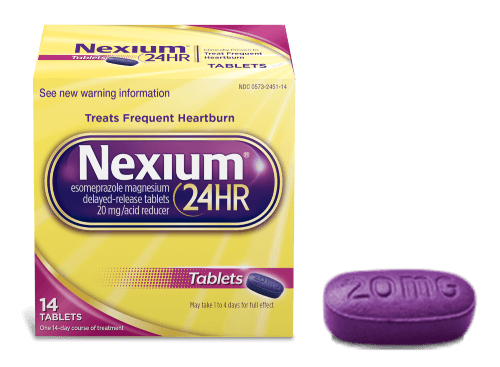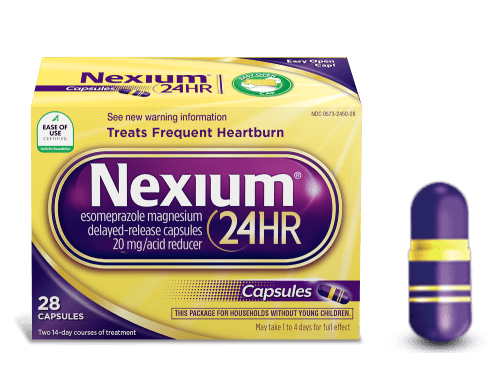If GERD is bringing you down, you may feel as though there’s nothing you can do to manage it and that you’re at the mercy of your own digestive tract. Learn about managing your GERD and lifestyle changes you can implement to remedy your reflux.
What Is GERD?
Gastroesophageal reflux disease, or GERD, is a term for chronic acid reflux that occurs at least twice a week for multiple weeks.1 It’s caused when the valve that separates your stomach from your esophagus, called the lower esophageal sphincter (LES), malfunctions and lets the acidic contents of your stomach into your esophagus.1 This can lead to symptoms like a burning feeling in your chest, nausea, a sore throat and a sour taste in your mouth.1
Healthcare providers often encourage those with chronic acid reflux to consider lifestyle changes in order to help manage their symptoms and treat GERD.1
Managing GERD with Diet and Lifestyle Changes
When we talk about lifestyle changes, we mean making changes to things that we have control over in our lives.2 This could mean changing your bedtime, buying new shoes, joining a gym and changing your diet. Changing aspects of your daily routine may be able to help you manage your GERD symptoms.2
Dietary Changes
What and how you eat can have a direct effect on your GERD.2 Certain foods may trigger your reflux, and while these may vary from person to person, a few common ingredients to avoid include:2,3
- Chocolate
- Onions
- Coffee and caffeinated drinks
- Fried foods or overly fatty foods
- Alcohol
If you aren’t certain which foods are causing you to experience acid reflux, try reducing your intake of these common triggers and see if it makes a difference in how you feel.2
How you eat may be even more important than what you eat; if you’re prone to eating a snack before bedtime, you may experience nighttime reflux as a result.2 If your stomach hasn’t emptied before you head to bed, it may exert presser on your LES, leading to acid reflux.2
A great tip is to have your largest meal in the middle of the day, rather than at night, and to eat a lighter dinner, to ensure that you’re not still stuffed when you head to bed.2 Another option is to eat many smaller meals throughout the day to stimulate digestion.3
Staying Upright
Reflux occurs when stomach acid travels back up your esophagus, which means that gravity is your ally in controlling reflux.1,2 For those that experience heartburn when they lie in bed at night or when they take a nap on the couch, elevating the head and shoulders may be especially helpful.2,3 Consider raising the head of your bed, stacking pillows or using a triangular wedge to keep from lying flat and ensure that your esophagus is positioned above your stomach when you sleep.2 If possible, maintain an upright position until a meal is digested before you turn in for the night.2
Lifestyle Changes
While adjusting how and what you eat can go a long way to managing your chronic heartburn, there are other things in your life that you can change to take better control of your GERD.
- Maintain a healthy weight. If you’re overweight, the extra pounds you’re carrying may put pressure on your abdomen which can trigger your reflux. Keeping your weight at a healthy level can reduce that pressure on your abdomen.1,2,3
- Wear loose-fitting clothes. Clothes that fit snugly may add to the pressure on your abdomen and cause you to experience heartburn.1,3
- Quit smoking and drinking. Alcohol and tobacco can weaken your LES, leading to more instances of reflux.1 Additionally, both substances can cause your stomach to become more acidic over time and cause you to digest your food more slowly.1,3
In addition to these lifestyle changes to manage your GERD, keeping a proton-pump inhibiting drug like Nexium 24HR around to provide frequent heartburn relief is an excellent idea. With just one dose a day, you can stay heartburn free all day and all night.*
*It's possible while taking Nexium 24HR. Use as directed for 14 days to treat frequent heartburn. Do not take for more than 14 days or more often than every 4 months unless directed by a doctor. Not for immediate relief.
For more information around heartburn, check out Nexium 24HR on YouTube!





